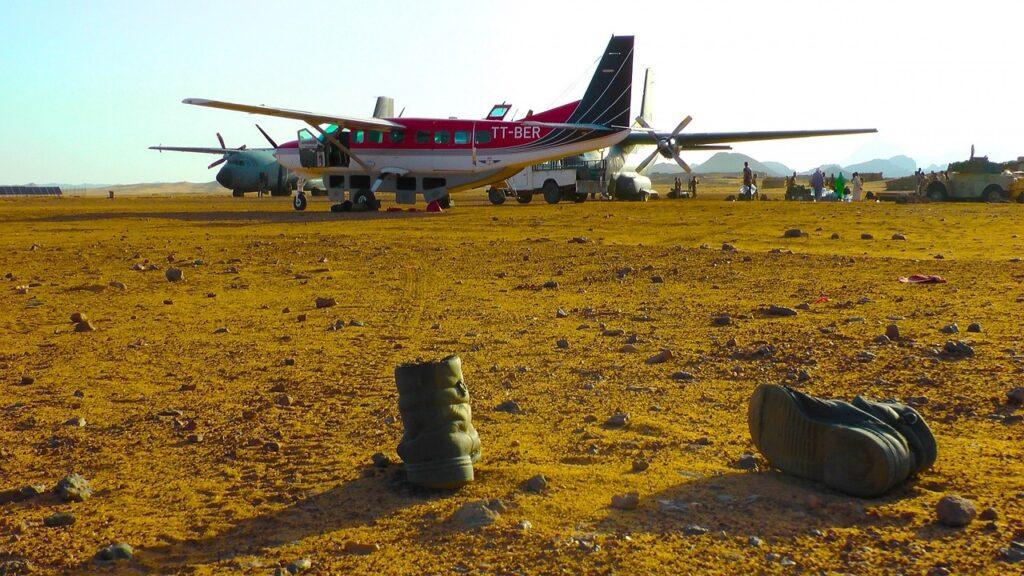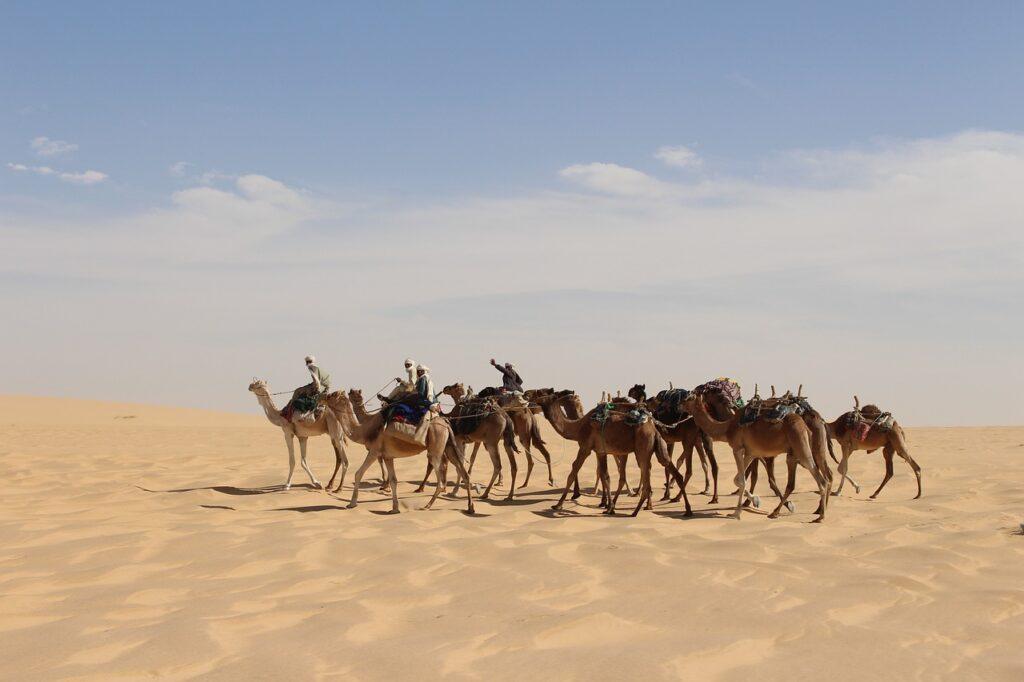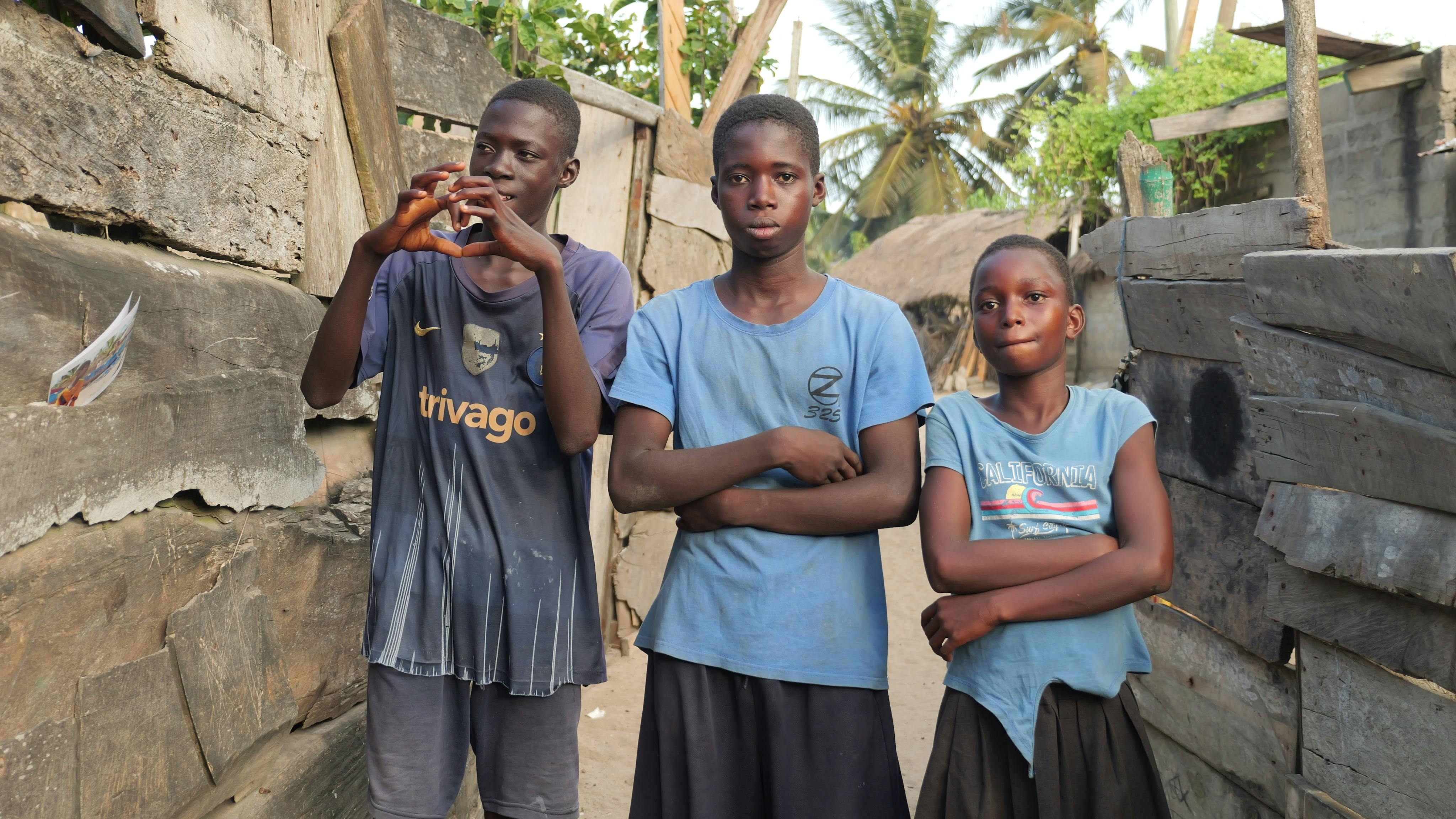Standing at the edge of the Sahara, the burning sun beating on my weathered backpack, the thrill of excitement and apprehension tumbled through my being. Chad is one of those very few countries which travelers don’t normally mention; it is going to be my home for some weeks now. broke budget, penchant for adventure in the air, and I fly into uncharted territories.
Backpacking in Chad is not for the faint of heart. The country’s rugged landscape, combined with its extremely limited infrastructure and harsh climate, makes it a challenge even for seasoned travelers. Yet, it’s precisely this sense of uncertainty that drew me to Chad. I had to soak myself into the local culture, be among these resilient people who had been trying to survive in this very harsh region, and to explore hidden pearls that one doesn’t see.
In this blog, I’ll share with you all my personal experiences, tips, and stories from the road while I go through ups and downs broke backpacking in Chad. From hitchhiking through the desert to trying local cuisine, I will delve into minute details of traveling on a broke budget in one of Africa’s most mysterious countries. So join me on this journey into the unknown, and find out for yourself how beautiful, complex, and adventurous it is in Chad.
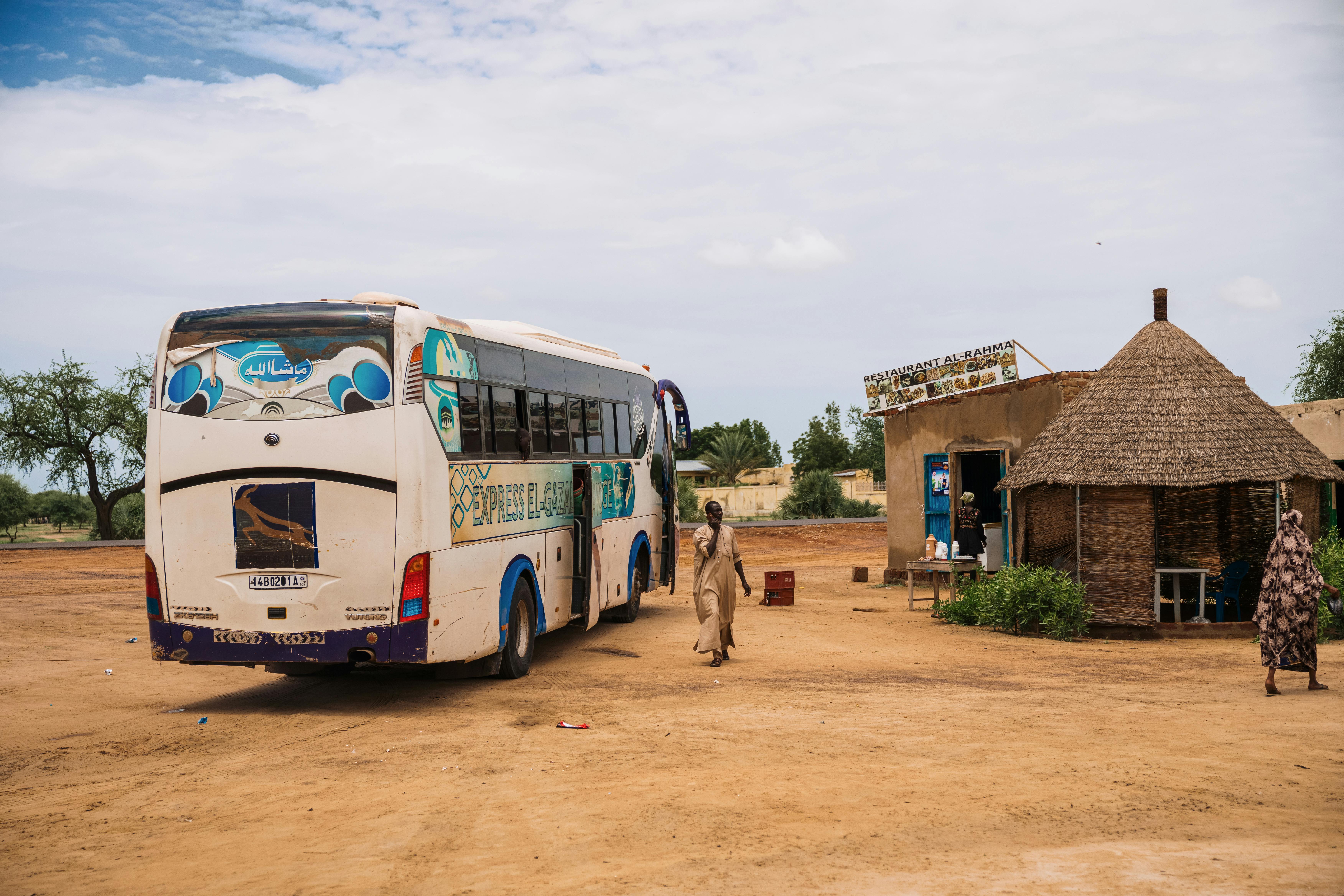
How to get there:
Tucked away in the heart of Africa, Chad is a destination that’s often overlooked by travelers. However, with its unique cultural heritage, breathtaking landscapes, and warm hospitality, Chad is a gem waiting to be discovered. One of the biggest challenges of visiting Chad is getting there, but with some planning and research, you can reach this incredible country using public transportation from its neighboring countries.
Cheapest Places to Get Flights To
Before we dive into the public transportation options, let’s explore the cheapest places to get flights to Chad’s neighboring countries:
- N’Djamena International Airport (NDJ): You can fly into N’Djamena, Chad’s capital city, from major African hubs like Addis Ababa, Ethiopia (around $400-$600 USD), or Douala, Cameroon (around $300-$500 USD).
- Douala International Airport (DLA): Douala, Cameroon, is a major hub with connections to Europe and other African cities. You can find flights from Brussels, Belgium (around $400-$600 USD), or Lagos, Nigeria (around $200-$400 USD).
- Yaoundé Nsimalen International Airport (NSI): Yaoundé, Cameroon’s capital city, also receives international flights. Look for connections from Paris, France (around $500-$700 USD), or Abidjan, Côte d’Ivoire (around $300-$500 USD).
Public Transportation Options from Neighboring Countries
Now, let’s explore the public transportation options from Chad’s neighboring countries:
From Cameroon
- Bus: Take a bus from Douala or Yaoundé to the Cameroon-Chad border town of Kousseri (around 10-12 hours, $10-$20 USD). From Kousseri, take a shared taxi or bus to N’Djamena (around 4-6 hours, $5-$10 USD).
- Shared Taxi: Shared taxis are available from Douala or Yaoundé to N’Djamena (around 12-14 hours, $20-$30 USD).
From Central African Republic
- Bus: Take a bus from Bangui, the capital city of the Central African Republic, to the CAR-Chad border town of Sido (around 8-10 hours, $10-$20 USD). From Sido, take a shared taxi or bus to N’Djamena (around 6-8 hours, $10-$20 USD).
- Shared Taxi: Shared taxis are available from Bangui to N’Djamena (around 14-16 hours, $30-$40 USD).
From Sudan
- Bus: Take a bus from Khartoum, the capital city of Sudan, to the Sudan-Chad border town of Geneina (around 12-14 hours, $20-$30 USD). From Geneina, take a shared taxi or bus to N’Djamena (around 8-10 hours, $15-$25 USD).
- Shared Taxi: Shared taxis are available from Khartoum to N’Djamena (around 18-20 hours, $40-$50 USD).
From Niger
- Bus: Take a bus from Niamey, the capital city of Niger, to the Niger-Chad border town of Zinder (around 10-12 hours, $15-$25 USD). From Zinder, take a shared taxi or bus to N’Djamena (around 6-8 hours, $10-$20 USD).
- Shared Taxi: Shared taxis are available from Niamey to N’Djamena (around 16-18 hours, $30-$40 USD).
When to go:
Chad is a destination that’s as challenging as it is rewarding. As a broke backpacker, timing your trip is crucial to ensure a safe, enjoyable, and budget-friendly adventure. In this guide, we’ll break down the best times to visit Chad, taking into account the country’s climate, festivals, and other factors that might impact your travels.
Dry Season (October to May)
- Pros: Cooler temperatures (20-30°C/68-86°F), minimal rainfall, and easier travel conditions.
- Cons: Higher prices for accommodations and transportation, more tourists.
- Best for: Broke backpackers who prioritize comfort and ease of travel.
Hot Season (June to September)
- Pros: Lower prices for accommodations and transportation, fewer tourists.
- Cons: Scorching temperatures (30-40°C/86-104°F), limited shade, and increased risk of heat-related illnesses.
- Best for: Experienced broke backpackers who can handle extreme heat and are looking for a more authentic, off-the-beaten-path experience.
Rainy Season (July to October)
- Pros: Lush landscapes, cooler temperatures, and a more relaxed atmosphere.
- Cons: Increased risk of flooding, muddy roads, and limited transportation options.
- Best for: Broke backpackers who enjoy nature, are flexible with their itinerary, and don’t mind getting a little dirty.
Festivals and Events
- Festival of the Lake (February-March): A vibrant celebration of music, dance, and culture in the town of Bol.
- N’Djamena International Festival (April-May): A showcase of Chadian music, art, and cuisine in the capital city.
- Eid al-Fitr (dates vary): A significant Islamic holiday, celebrated with feasts, prayers, and family gatherings.
Tips for Broke Backpackers
- Be flexible: Chad’s climate and infrastructure can be unpredictable. Stay flexible with your itinerary, and be prepared for unexpected challenges.
- Pack accordingly: Bring light, breathable clothing for the hot season, and warm layers for the cooler months.
- Stay hydrated: Drink plenty of water, especially during the hot season, to avoid dehydration.
- Respect local customs: Chad is a conservative country. Dress modestly, respect local traditions, and avoid public displays of affection.
By understanding the best times to visit Chad, you can plan your broke backpacking adventure accordingly. Whether you prefer the comfort of the dry season or the authenticity of the hot season, Chad is a destination that’s sure to leave you with unforgettable memories.
Best Itineraries:
3-Day Itinerary
- Day 1: Arrive in N’Djamena, explore the city’s markets, mosques, and colonial architecture.
- Day 2: Visit the Chad National Museum, then head to the outskirts of the city to explore the scenic Lake Chad.
- Day 3: Take a shared taxi or bus to the nearby town of Massakory, known for its vibrant markets and traditional villages.
1-Week Itinerary
- Day 1-2: Explore N’Djamena’s city life, markets, and cultural attractions.
- Day 3-4: Take a bus or shared taxi to the town of Moundou, known for its beautiful scenery, traditional villages, and vibrant markets.
- Day 5-6: Visit the nearby town of Sarh, with its stunning natural scenery, traditional villages, and historic sites.
- Day 7: Return to N’Djamena, reflecting on your week-long adventure.
2-Week Itinerary
- Day 1-3: Explore N’Djamena’s city life, markets, and cultural attractions.
- Day 4-6: Take a bus or shared taxi to the town of Abéché, known for its stunning natural scenery, traditional villages, and historic sites.
- Day 7-9: Visit the nearby town of Adré, with its beautiful scenery, traditional villages, and vibrant markets.
- Day 10-12: Explore the Ennedi Desert, with its stunning natural scenery, unique rock formations, and nomadic tribes.
- Day 13-14: Return to N’Djamena, reflecting on your two-week adventure.
1-Month Itinerary
- Week 1: Explore N’Djamena’s city life, markets, and cultural attractions.
- Week 2: Take a bus or shared taxi to the town of Moundou, then visit the nearby towns of Sarh and Koumra.
- Week 3: Explore the Ennedi Desert, with its stunning natural scenery, unique rock formations, and nomadic tribes.
- Week 4: Visit the town of Faya-Largeau, with its stunning natural scenery, traditional villages, and historic sites.
3-Month Itinerary
- Month 1: Explore N’Djamena’s city life, markets, and cultural attractions, then visit the nearby towns of Moundou, Sarh, and Koumra.
- Month 2: Explore the Ennedi Desert, with its stunning natural scenery, unique rock formations, and nomadic tribes, then visit the town of Faya-Largeau.
- Month 3: Visit the town of Abéché, known for its stunning natural scenery, traditional villages, and historic sites, then return to N’Djamena, reflecting on your three-month adventure.
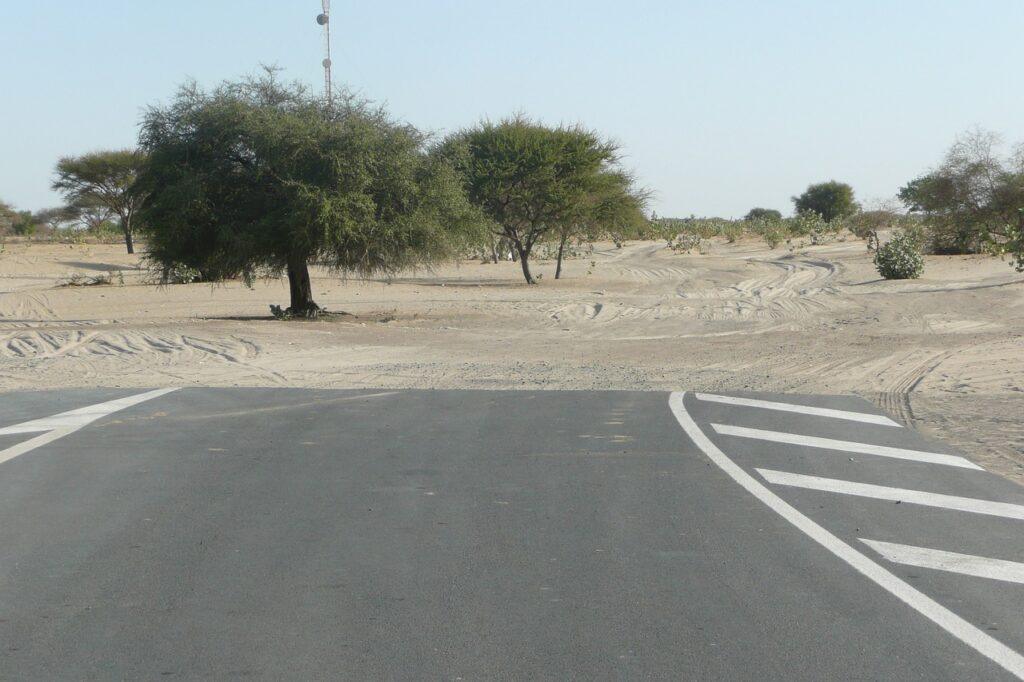
Transportation:
Chad is a vast and sparsely populated country which presents a unique challenge for travelers relying on public transportation. While options may be limited, understanding the various modes of transportation available can help you navigate this incredible country. In this guide, we’ll delve into the world of public transportation in Chad, including a comprehensive hitchhiking guide based on (link unavailable)
Public Transportation Options
Buses
- Urban Buses: Cities like N’Djamena and Moundou have urban bus networks, connecting major neighborhoods and markets.
- Inter-City Buses: Private companies operate bus services between major towns and cities, often using aging vehicles.
- Bush Taxis: Informal, shared taxis connect rural areas to urban centers, often using pickup trucks or minibuses.
Taxis
- Shared Taxis: Common in urban areas, shared taxis operate on fixed routes, picking up passengers along the way.
- Private Taxis: Hire a private taxi for door-to-door service, negotiating prices beforehand.
Camions
- Cargo Trucks: In rural areas, cargo trucks often transport people and goods, providing an affordable, albeit slow, option.
Pirogues
- River Transport: In areas like Lake Chad, pirogues (traditional wooden canoes) offer a unique way to travel, often used for fishing and trade.
Hitchhiking in Chad:
General Tips
- Road Conditions: Chad’s roads are often poor, making hitchhiking a slow and bumpy experience.
- Vehicle Availability: Traffic can be scarce, especially in rural areas, so be prepared to wait.
- Language: Arabic and French are widely spoken; learn basic phrases to communicate with drivers.
- Safety: Exercise caution when hitchhiking, especially at night or in isolated areas.
Best Places to Hitchhike
- N’Djamena: The capital city has a relatively high volume of traffic, making it easier to find rides.
- Moundou: This city has a busy market and transportation hub, increasing the chances of finding a ride.
- Highway N1: This main highway connects N’Djamena to Moundou and other major towns, offering a higher volume of traffic.
Signs and Signals
- Use a Sign: Create a simple sign with your destination written in French or Arabic to help drivers understand your route.
- Thumbs Up: The universal thumbs-up gesture is widely recognized in Chad.
- Wave and Smile: A friendly wave and smile can go a long way in attracting potential rides.
Waiting Times
- Urban Areas: Waiting times in cities like N’Djamena and Moundou are relatively shorter, ranging from 15 minutes to an hour.
- Rural Areas: In rural areas, waiting times can be significantly longer, often ranging from several hours to a full day.
Accommodation and Food
- Bush Camping: In rural areas, consider bush camping, using a tent or sleeping under the stars.
- Local Hospitality: Chad is known for its warm hospitality; don’t be surprised if locals invite you to share a meal or stay overnight.
By understanding the public transportation options and hitchhiking opportunities in Chad, you’ll be better equipped to navigate this incredible country. Remember to stay flexible, patient, and open-minded, and you’ll be rewarded with unforgettable experiences and encounters.
Top things to do:
N’Djamena and Surroundings
- N’Djamena Grand Mosque: Marvel at the beautiful architecture and vibrant atmosphere of this iconic mosque.
- N’Djamena Market: Immerse yourself in the sights, sounds, and smells of this bustling marketplace.
- Lake Chad: Take a boat tour or simply enjoy the scenic views of this majestic lake.
- Chad National Museum: Learn about the country’s rich history and culture at this informative museum.
- N’Djamena Cathedral: Admire the stunning architecture and peaceful atmosphere of this beautiful cathedral.
- Avenue Charles de Gaulle: Explore the shops, cafes, and restaurants along this vibrant avenue.
- N’Djamena’s Old Town: Wander through the narrow streets and discover the city’s rich history and culture.
Moundou and the Southwest
- Moundou Market: Explore the vibrant stalls and shops of this bustling market.
- Gauthiot Falls: Hike to the stunning Gauthiot Falls, a breathtaking natural wonder.
- Mbao Forest: Trek through the lush Mbao Forest, spotting unique wildlife and flora.
- Sarh: Visit the historic town of Sarh, with its colonial architecture and rich cultural heritage.
- Koumra: Explore the vibrant market and historic sites of this charming town.
- Pala: Visit the stunning Pala Falls and explore the surrounding countryside.
- Léré: Discover the unique culture and traditions of this rural town.
Abéché and the East
- Abéché Market: Discover the unique products and flavors of this bustling market.
- Ennedi Desert: Explore the stunning natural beauty of the Ennedi Desert, with its unique rock formations and nomadic tribes.
- Aloba Arch: Marvel at the breathtaking Aloba Arch, a natural wonder in the Ennedi Desert.
- Ouaddaï Region: Visit the historic Ouaddaï Region, with its ancient trade routes and cultural heritage.
- Adré: Explore the vibrant market and historic sites of this charming town.
- Biltine: Visit the stunning Biltine Canyon and explore the surrounding countryside.
- Amdjarass: Discover the unique culture and traditions of this rural town.
Faya-Largeau and the North
- Faya-Largeau Market: Explore the vibrant stalls and shops of this bustling market.
- Tibesti Mountains: Trek through the stunning Tibesti Mountains, with their unique landscapes and nomadic tribes.
- Emi Koussi: Hike to the summit of Emi Koussi, the highest peak in Chad.
- Gouro: Visit the historic town of Gouro, with its ancient trade routes and cultural heritage.
- Yebbi Bou: Explore the stunning natural beauty of Yebbi Bou, with its unique rock formations and nomadic tribes.
- Zouar: Visit the historic town of Zouar, with its ancient trade routes and cultural heritage.
- Bardaï: Discover the unique culture and traditions of this rural town.
Zakouma National Park
- Wildlife Safaris: Take a guided safari tour to spot incredible wildlife, including elephants, lions, and giraffes.
- Hiking and Trekking: Explore the park’s stunning landscapes and unique ecosystems on foot.
- Camping: Spend a night under the stars, camping in the heart of the national park.
- Birdwatching: Spot a wide variety of bird species, including eagles, vultures, and storks.
- Tinga: Visit the stunning Tinga Waterfall and explore the surrounding countryside.
- Rigueik: Explore the unique culture and traditions of this rural town.
- Am Timan: Discover the vibrant market and historic sites of this charming town.
Other Destinations
- Kyabé: Visit the historic town of Kyabé, with its ancient trade routes and cultural heritage.
- Bol: Visit the historic town of Bol, with its ancient trade routes and cultural heritage.
- Massakory: Explore the vibrant market and historic sites of this charming town.
- Bongor: Discover the unique culture and traditions of this rural town.
- Kelo: Visit the stunning Kelo Waterfall and explore the surrounding countryside.
- Laï: Explore the vibrant market and historic sites of this charming town.
- Doba: Discover the unique culture and traditions of this rural town.
Food:
Chad, being right in the heart of Africa, is a country that offers a very unique and fascinating culinary experience to travelers. Food in Chad is influenced by the culture, geographic locations, and economic conditions of the country. Therefore, the cuisine in Chad forms an interesting combination of influences of traditional African, Arab, and French.
Staple foods in Chad include meals prepared with millet, sorghum, and rice with various sauces and stews mixed with vegetables, meat, and spices. One of the most favorite probably dishes in Chad is a traditional stew made with a mix of meat or fish, vegetables, and grains called “bouillie”. It is mostly served with a side of fufu, a staple food made from boiled and pounded cassava or yams.
The cuisines in Chad also include traditional dishes, such as bouillie, influenced by the history of the country being a French colony. Thus, much of Chadian cuisine includes the use of French ingredients and methods of cooking, such as bread and cheese. One common snack is a sandwich, with a baguette, cheese, and vegetables generally served with tea or coffee.
But regardless of unique flavors and ingredients that have survived in Chadian cuisine, the general outlook towards food for the traveler remains somewhat discouraging. Most meals out in rural areas are sparse, simple, and repetitive, with very limited options available. On the whole, food in Chad remains quite unaffordable, with malnutrition ranking as one of the main public health issues because of this country’s unenviable economic situation.
Local eating and street food stalls are excellent avenues on which the traveler can explore Chad’s cuisine; most of these always have a sale of all types of traditional dishes, including bouillie, fufu, and grilled meats, at affordable prices. In addition, most of these markets and stalls sell fresh fruits and vegetables, which are good for maintaining healthy energy levels throughout the trip.
Other options include home-stays with families and communities, which are usually a very good opportunity for exposure to Chadian hospitality and meals. In many of the cultures in Chad, food is an important aspect in social bonding and community building, with meals seen as opportunities for coming together and sharing stories. Homestays among the local families or communities will help gain better insights into the culture and food of Chad, besides allowing one to mingle with the people.
In Chad, mealtime is an important time to socialize and build community. In many cultures, meals are eaten off of one shared plate, and everyone gathers around to share food and conversation. This can be a great opportunity for travelers to meet locals and really experience the unique culture and cuisine of the country.
One of the ingredients most favored and popular in Chadian cuisine is peanut sauce, which is made from ground peanuts, spices, and vegetables. The peanut sauce is usually served with rice, millet, or fufu and happens to be one of the mainstays in most of the dishes in Chad. Other favorite ingredients include cassava, one of the staple crops of Chad, boiled, pounded, or fried into a range of dishes.
Other than peanut sauce and cassava, some of the other peculiar ingredients that go into Chadian cuisine are baobab fruit, mangoes, and dates. These are often combined with spices and herbs like cumin, coriander, and chili peppers to make a variety of dishes.
One of the best ways for travelers to enjoy Chadian food is to try some of their unique street foods. At any given time, the sale of street foods is always around markets and stalls; foods may be as simple as snacks like roasted peanuts or grilled corn on the cob or be a little more complex, such as bouillie or peanut sauce with rice.
Commonly served street foods in Chad include: kisra or a type of flat bread which is often served with a complement of peanut sauce or many others; millet porridge made from millet flour and the common accompaniment could be milk or sugar. It would also include grilled meat skewers, often made of beef, chicken, or goat, to be served with a peanut sauce or other toppings.
Visiting markets and food stalls is another good way of experiencing Chadian cuisine in addition to trying street foods. Markets are always busy with activities, with a variety of fresh produce, meats, and spices being offered. This will provide the traveler with great insight into Chadian cuisine and culture, and an opportunity to taste some of the unique ingredients and dishes found only in this country.
Overall, the general situation with food in Chad is an intricate, entangled matter that reflects the nation’s peculiar cultural, geographical, and economic background. While this situation may create some challenges for tourists, it also opens up opportunities for experiencing new flavors and ingredients used in Chadian cuisine and building meaningful bonds with people and communities they will come into contact with. By being open-minded, flexible, and respectful of local customs,
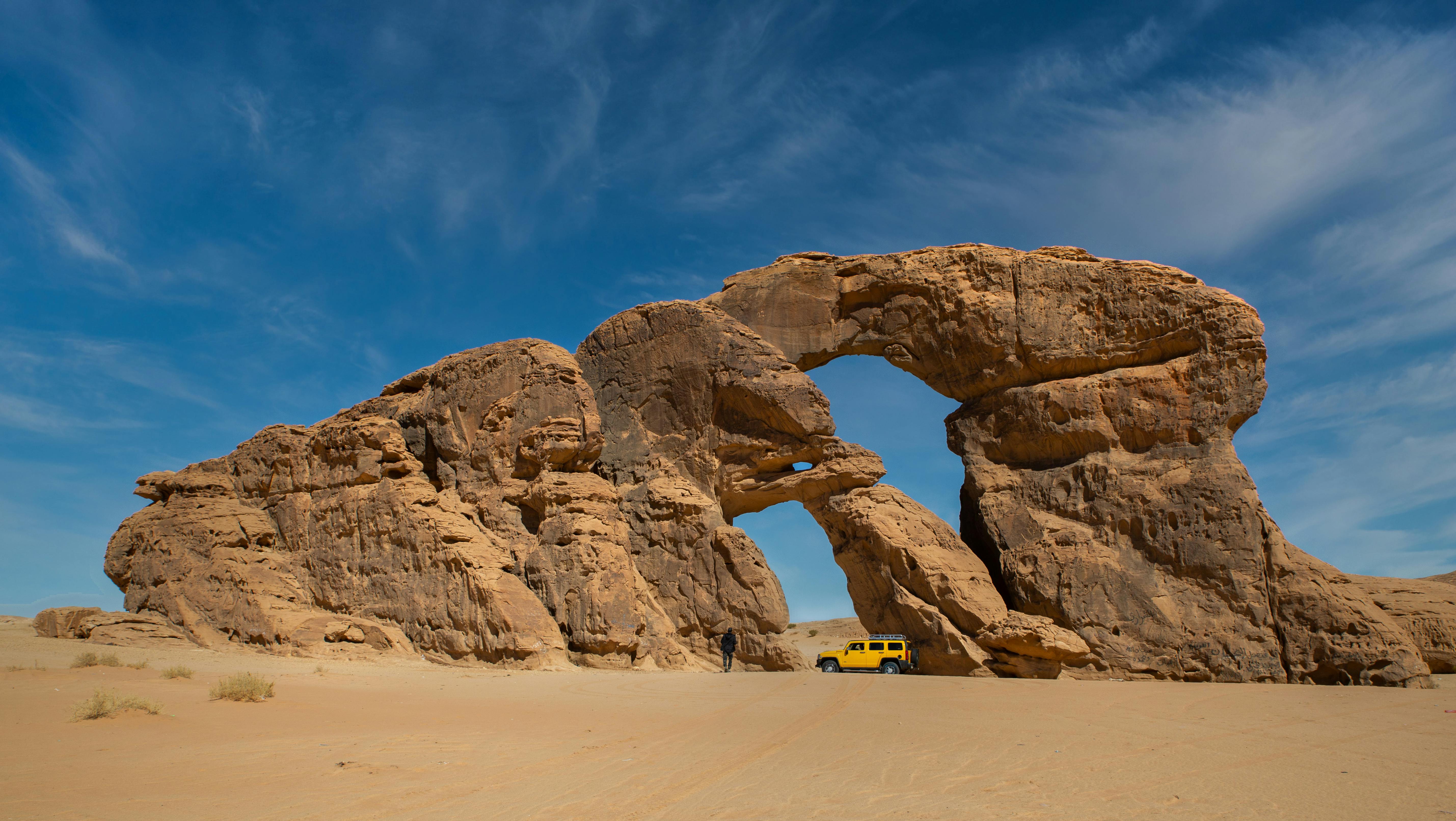
Culture:
Chad is a country in the heart of Africa with rich and varied cultural heritage. This unique cultural identity the country has, at the crossroads of Africa, where several ethnic groups, empires, and colonial powers have crossed and influenced one another for centuries. The strong social bonding and sense of community form the core of Chadian culture. In many Chadian societies, the notion of “family” goes beyond the nuclear family into the broader community, where people often refer to each other as “brother” or “sister.” This emphasis on community and social solidarity is reflected in the many traditional festivals and celebrations that take place throughout the country, where people come together to share food, music, and dance.
One of the most valuable aspects of Chadian culture is a great tradition of storytelling and oral history. In most Chadian societies, there are passed-on stories and legends by word of mouth; this has provided a unique peep into the country’s history, myths, and values. This emphasis on storytelling further permeates the vibrant musical and dance traditions of the country, whereby songs and rhythms are a common medium for relaying important messages and telling stories.
Chadian culture has also been well influenced by its Islamic heritage, seeing as it is the leading religion carried by the majority in this state. This influence reflects several beautiful mosques and pieces of Islamic architecture across the country and many Islamic festivals celebrated around the year. Equally nonetheless, Chadian culture influences its many ethnic groups, all of which have unique traditions and customs.
The culture of respect for elders and tradition goes deep into Chadian life. Among these many Chadian ethnicities, the majority of their respect goes toward the elderly population, the wisest, and mostly those asked for dispute settlement or advice on different topics. The huge respect felt for tradition finds more exposure in these numerous traditional festivals of their country when all the residents come together and honor their common ancestors while proudly enjoying this part of their identity.
Despite the many difficulties Chadian culture faces, the culture is still vigorous and dynamic in nature. With its rich tradition of story-telling and oral history, its beautiful Islamic architecture, and its vibrant music and dance, Chadian culture can easily please any kind of person. From learning about the history and traditions of the country to experiencing the warmth and hospitality of the Chadian people, there is no better way than through the unique and fascinating culture of the country. In many Chadian societies, “hospitality” is a deep-seated principle, with visitors often being treated to elaborate meals and other ceremonies. This aspect of hospitality finds its place in many traditional festivals and events celebrated across the country where people come together to share food, music, and dance. Be it a stranger in some village or a guest at a family’s place in Chad, you get the same warmth in their hospitality.
Chadian culture also emanates from the different ethnic groups that exist in the country, each having their unique traditions and customs. From the Sara people in the south to the Toubou people in the north, every ethnic group in Chad has its own culture and identity. This is depicted in many of the traditional festivals and ceremonies in the country, where its people share their unique culture and customs.
In addition to its many ethnic groups, Chad also hosts a number of nomadic tribes, who traditionally roamed the vast deserts and savannas of the country in search of pasture and water for their animals. These nomadic tribes have developed unique cultures and traditions adapted to their harsh, mobile lifestyle and offer a fascinating glimpse into the rich cultural heritage of the country.
Amidst so many challenges, Chadian culture remains a source of pride and identity for the Chadian people. From the rich tradition of storytelling and oral history to the beautiful Islamic architecture and vibrant music and dance, Chadian culture is a unique and fascinating reflection of the country’s complex history and cultural heritage. Learn from the nation’s history, gain appreciation from the rich traditions, take a leap into the land overflowing with warmth in the hearts of the Chad people, get saturated with an active and changing culture of the country-in every imaginable way. Among the common Chadian feature of several societies is one of placing “community above the desires of the self.”. More dramatically still, the sense of community continues to be reflected in various traditional festivals and ceremonies dotting the entire landscape, people coming together in a show of food, music, and dance. Whether he be a stranger in the rural village or a guest at someone’s house, the important thing is that here one travels as a prince in Chad.
Accommodations:
The poorest backpacker, traveling around Chad is a daunting task in itself-especially concerning accommodation. But for him who takes the risk to book an accommodation, the cheapest, a very great reward awaits him in return. This article will explore the world of hostels and cheap stays in Chad, and why taking a leap into the unknown will result in some unique, crazy, and amazing experiences of your travel.
When it comes to booking accommodation in Chad, the temptation is to go for the more expensive options, which promise a certain level of comfort and security. For those who want to immerse themselves in the culture and experience the real Chad, though, booking the cheapest options is often the way to go.
Most of these low-budget hostels and guesthouses are small, family-run affairs, and the owners are always eager to share their culture and traditions with visitors. A stay in these establishments affords visitors the chance to immerse themselves in the daily life and customs of the Chadian people-from delicious local cuisine to vibrant music and dance.
Probably the most unique aspect of staying in cheap hostels in Chad is the sense of community that develops among the guests. Most of these establishments take on a communal atmosphere, as travelers from all parts of the globe come together, share stories, and experiences. It is not out of the ordinary to find yourself around the campfires swapping stories of adventure with fellow travelers or sharing a meal with your hosts and learning about their customs and traditions.
Of course, budget hostels in Chad don’t come without their particular difficulties: mediocre facilities, cold showers, and beds with character-building tendencies. Still, if roughing it out is more to your taste, then it has its very obvious rewards. Apart from saving accommodation dollars, the actual Chad presents itself uncomplicated and plain, like you prefer it.
In addition to the cultural experiences and sense of community, staying in cheap hostels in Chad can also be a great way to meet other travelers and locals who can provide valuable advice and insights. Many of these places have a lot of information about the local area, from the best places to eat and drink to the most scenic hiking trails and hidden gems.
Traveling through Chad can be quite daunting if you’re a broke backpacker, but by embracing the unknown and booking the cheapest options available, you may just have some of the most unique, crazy, and amazing experiences of your travels. Why not take the leap and see where that leap of faith takes you? Book that cheap hostel, grab your backpack, and get ready for the adventure of a lifetime.
In these Chad cheap hostels, the price factor is not there, but the excitement in the whole experience and people one happens to come across. Once they arrive, it will be time into the local culture and life-a fusion of types of all types of persons who come from all walks of life.
Whether you are a seasoned traveler or just starting out, staying in cheap hostels in Chad is one sure way to challenge yourself and push your boundaries. You’ll learn to be resourceful and adaptable, and you’ll develop a greater appreciation for the simple things in life.
Hospitality in Chad is engraved, and the visitors get a very warm welcome and generous reception. You will be able to experience this firsthand by staying in cheap hostels and communicating fruitfully with people you come across.
Of course, not everyone has to stay in cheap hostels in Chad. A little flexibility and adaptability are also required, and that is not easy. However, the rewards will be well worth the leap when taken.
After all, it is not about the cheap hostels in Chad-the place of stay-but the people you get to meet, the experiences you have, and the memories you create. Why not take the leap and see where it takes you? Book that cheap hostel, grab your backpack, and get ready for the adventure of a lifetime.
Nightlife:
Chad is a country in Central Africa, and it has a very unique and thrilling nightlife for its visitors. Nightlife within the country may not be that developed as compared to other parts of the continent, but generally, one can find everything here that might interest them, from busy markets and street food stalls to bars and clubs.
At the day’s close, N’Djamena with the Chadian population rises into being at its liveliest. Countless little boys, senior men, and women leave their houses for open streets, breathe in the refreshing evening air, and enjoy good company with friends and relatives. All markets and food stalls in this locality are seen busy with customers while purchasing all commodities from fresh fruits and vegetables to traditional crafts.
As the night wears on, all attentions turn from markets and food stalls to bars and clubs. These are usually very basic low-key affairs but always fun and full of life: the music is loud, the dancing energetic, and locals and travelers alike let loose to a great time.
One of the peculiarities of Chad’s nightlife is that it reflects the cultural heritage of the country. Traditional music and dance are an integral part of Chadian culture, and these elements are often incorporated into the nightlife scene. For example, it’s not uncommon to see traditional dancers performing in bars and clubs, or to hear traditional music being played by live bands.
Despite all the challenges that Chad has faced in the past, its nightlife scenario remains impressive and dynamic in nature. Be it the bustling street food stalls, busy markets, bars, or clubs, something can always be done or viewed in Chad after sundown. With a unique combination of modern and traditional elements, the nightlife scenario of Chad stands different from any other place.
Nightlife in Chad is one sure way of having a feel of the culture of the land and of meeting new people. Whether you are into traditional music and dancing or just want to go all out and have fun, Chad’s nightlife has something to offer. And with its laid-back and welcoming atmosphere, you’re sure to feel right at home.
As with any destination, it is always prudent to take certain precautions at night in Chad. Most especially, those areas where you find huge numbers of people, such as in marketplaces and food sold along the street, become dens of pickpocketing and petty crimes. With some basic precautions and knowledge of the local culture, you will enjoy yourself in Chad’s nightlife quite safely.
Overall, Chad’s nightlife is an incomparable thing, along with being quite exciting and an experience that shouldn’t be missed. From the hustling markets to the food on the street, all the way to bars and clubs, there’s always something to see and do in Chad when nighttime approaches. Why not come for a self-discovery trip? With its welcoming atmosphere and unique cultural heritage, Chad’s nightlife is a well worth trying experience.
Backpacking Chad costs:
Broke backpacking in Chad requires careful budgeting to make the most of your adventure. While daily budgets can vary greatly depending on your travel style, accommodation choices, and activities, here’s a rough breakdown of what you might expect to pay:
- Accommodation: Camping or staying in budget-friendly hostels and guesthouses can cost between $5-10 per night. For a week, that’s around $35-70 ¹.
- Food: Eating local street food and cooking your own meals can keep costs down. Budget around $3-5 per meal, or $10-15 per day. For a week, that’s around $70-100.
- Transportation: Hitchhiking, walking, or taking local transportation can be very affordable. Budget around $1-5 per ride, or $5-10 per day. For a week, that’s around $35-70.
- Activities and entrance fees: These can vary greatly, but budget around $5-10 per person for most activities. For a week, that’s around $35-70.
Overall, a daily budget for broke backpacking in Chad could be around $20-30 per day, or $140-210 per week. However, this can vary greatly depending on your specific travel plans and style.
To save even more money, consider the following tips:
- Couchsurfing: Stay with locals for free and experience the culture firsthand.
- Haggling: Negotiate prices for goods and services to get the best deal.
- Cooking your own meals: Save money by cooking your own food instead of eating out.
- Hitchhiking: Get free rides from locals and enjoy the scenery.
By being mindful of your expenses and taking advantage of affordable options, you can have a thrilling adventure in Chad without breaking the bank.
Conclusion:
All the memories are so fresh in my mind about my trip in Chad; this was the epitome of experiences for travelers who dare to veer off the beaten track. Broke backpacking is not for the faint-hearted, but if you’ll take a leap, that’s the moment the fun begins. From the startling beauty of the Sahara Desert down to the vivid culture and welcoming people of Chad, this country has left a mark on my heart.
Despite the many challenges that come with traveling on a broke budget, I have found that the experiences and encounters that I have had in Chad have been all the more meaningful and authentic because of the sacrifices I have made. From sharing meals with the locals to sleeping under the stars, each and every moment of my journey keeps reminding me that in traveling, the essence does not lie in the places we reach but in the people we meet and all those experiences we have during our travel.
As I look back on my time in Chad, I am so grateful and amazed. Is it a country that has taught me resilience, adaptability, and openness; it has shown me that beauty and joy can be found even in the most unexpected and challenging of circumstances. To anyone who would contemplate undertaking a similar journey, I say: take the leap. Chad can be a challenging destination, but it is a deeply rewarding one, too. For those who take up the road less traveled, though, the memories and experiences awaiting them are quite unforgettable.
